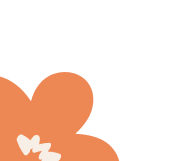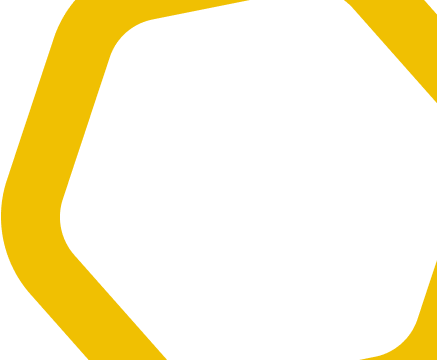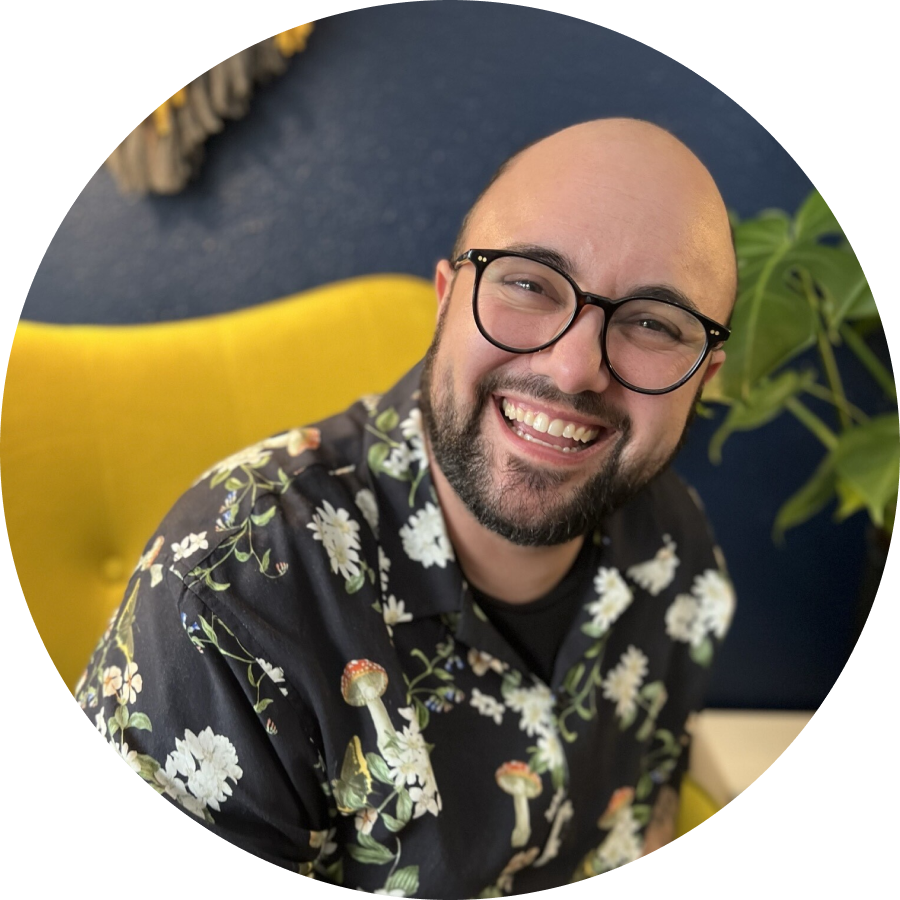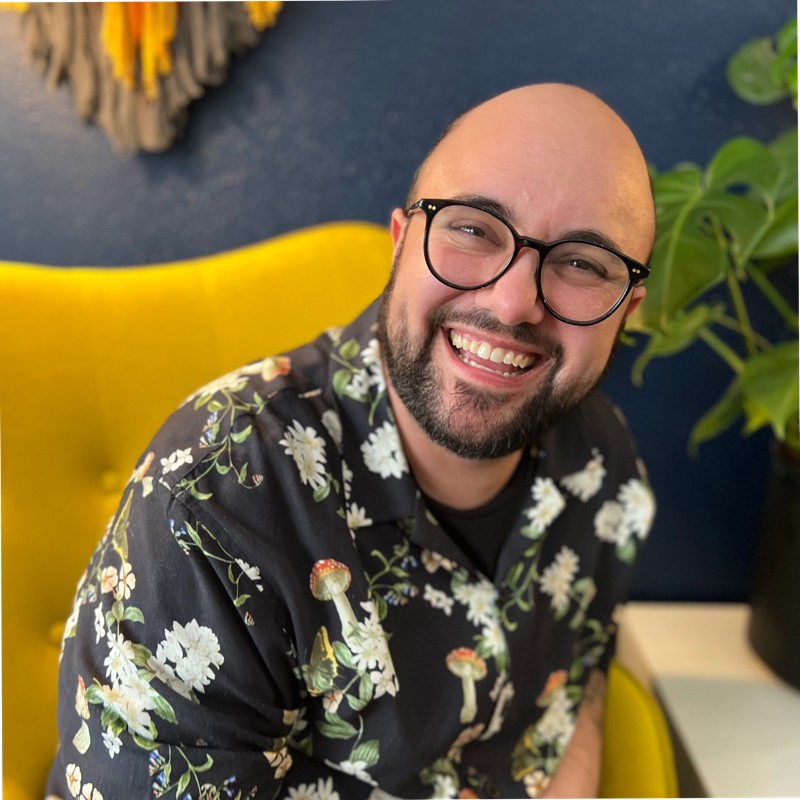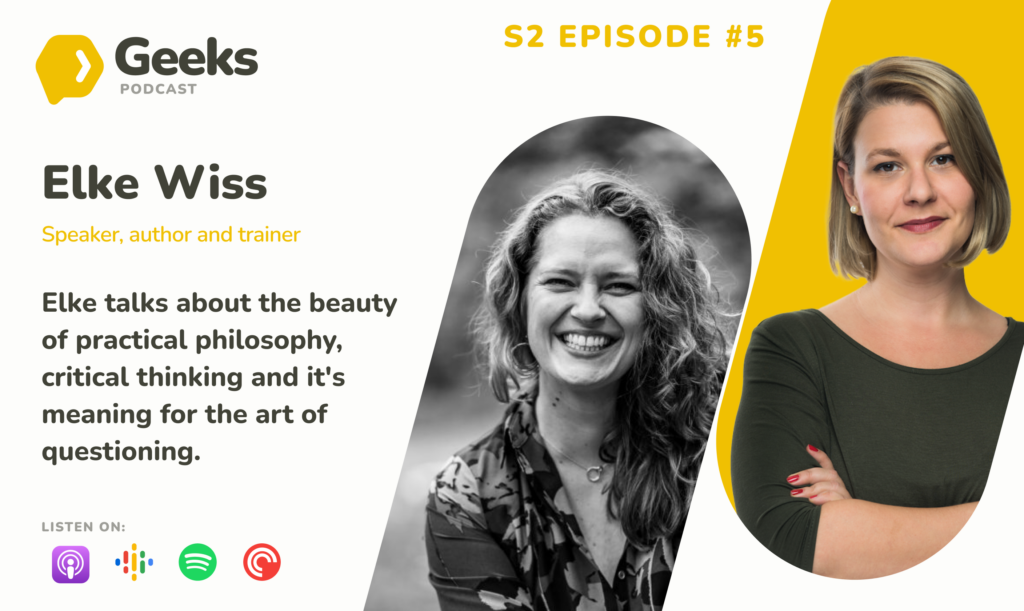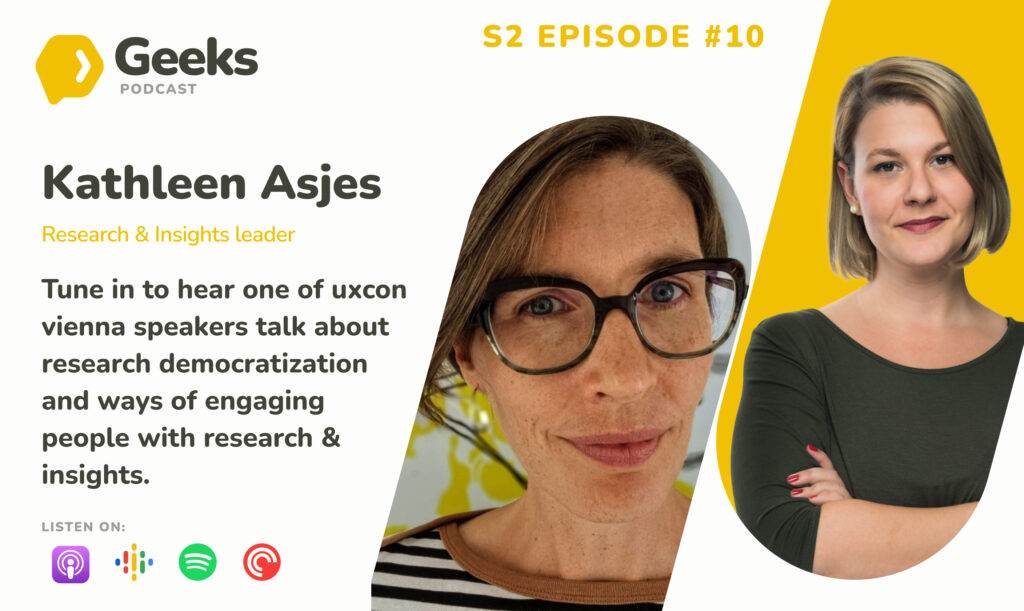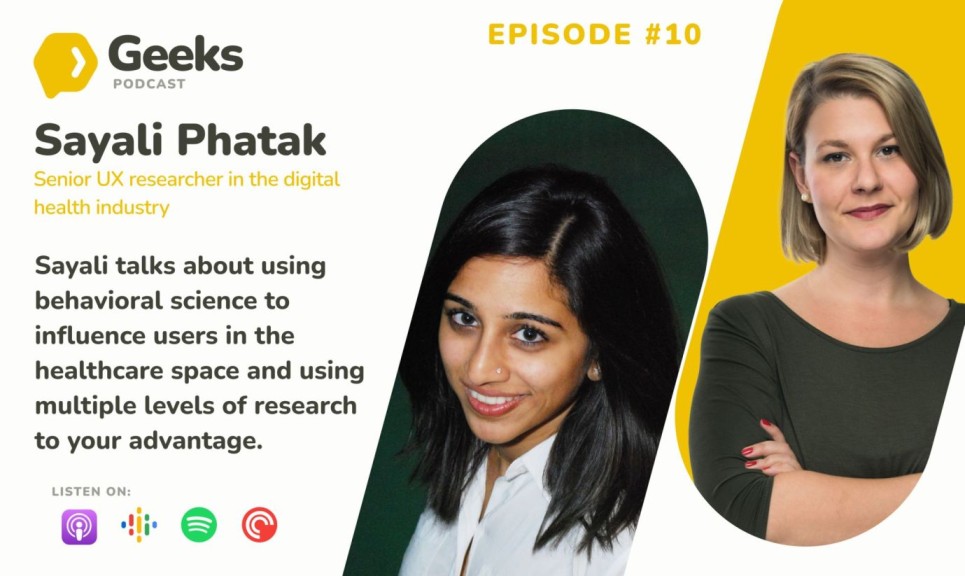Episode highlights
- 00:01:15 Aiden’s Media Background and UX Journey
- 00:04:26 Team Dynamics in UX Research
- 00:06:48 Critique of the Scientific Method in UX
- 00:10:41 Grounded Theory Explained
- 00:25:01 Democratization in UX Research
About our guest Aiden Hirshfield
Aiden is a research leader and digital strategy consultant across industries, focused on helping people foster more thoughtful and critical relationships with the media and technology they use in business and in life. His work is rooted in empathy building and uses mixed-method research to elevate the stories of people with lived experiences. Aiden believes that research is a group effort, so he is passionate about enabling teams with the right tools, methods, and expertise needed to conduct continuous and fruitful research at any maturity level.
Aiden holds a Ph.D. in Media Psychology, where his research examines the impact of representation on marginalized identities, primarily the LGBTQ+ community. He also started a new podcast, Media Psyched, where he talks about our complex relationships with media and technology. Aiden loves to give back to the UXR community as a mentor, speaker, and author.
Podcast transcript
[00:00:00] Tina Ličková:
Welcome to UX Research Geeks, where we geek out with researchers from all around the world on topics they are passionate about. I’m your host Tina Ličková, a researcher and a strategist, and this podcast is brought to you by UXtweak, an all-in-one UX research tool.
This is the 35th episode of UXR Geeks, and we spoke to Aidan, who is a researcher and media psychologist, who shares their insights on why grounded theory and continuous discovery complement each other perfectly, offering a holistic framework for understanding user needs and behaviors. We’ll explore together how these methodologies can lead to more innovative and user centric designs.
Tune in.
You do a lot of things and that this is the part of what really amazes. You’re hosting a podcast, you’re in the board of directors and counseling, and you studied media psychology. Could you tell me more how these things come together in your life and in your, with your character?
[00:01:15] Aiden Hirshfield: Yeah, absolutely. I’ve had about a decade in the media industry and that’s let me do a little bit of everything.
And I’ve done everything from e learning courses to publishing a screenplay to now really focusing on user experiences and customer insights. And so it’s, I run the gambit of kind of everything under this big umbrella that is media. And especially cause our industry has changed so much. In the last 10 years and shifted a lot.
And so I’ve just found myself in a lot of different, really cool opportunities because I’m a yes person. And so I love helping people. I love solving problems and that tends to. Lend drive a lot of my yeses when I get into the kind of these cool, unique opportunities. And I spent the last 10 years really as a freelance consultant when the most part, and that’s where I got my start is helping small companies and small businesses build from the ground up.
And when you do that, you have to be a Jack of all trades. You have to be a marketing master. You have to everything across the holistic experience that a customer might find when they’re finding a small business. And so that’s really where I found my love and passion for media. So I started in the film industry many years ago and I was born and raised in LA.
And so it was a very natural progression for me to find myself in this media space. But the film and television industry, when I turned 18, I started working in it. And I was like, Oh, this is a really toxic, super competitive place. I don’t know if this is for me. I haven’t been back to the film and television industry in a long time, but that is where really my passion grew for media and that’s virtually what brought me to media psychology, which is where I have my PhD in and two master’s degrees.
And it was a natural progression from that into user research, which I know we’ll get into. But as far as the counseling clinic, you tend to meet a lot of psychologists when you’re a psychologist. And being who I am and wanting to help small businesses and folks get started up. I had a friend who was starting a counseling clinic and needed support, needed people on her advisement team, needed their founders and things like that.
Folks who were interested in helping bring mental health to people. To marginalize communities and bring really inclusive mental health practices. So that was the mission behind that, that company. And so I got started with them early on and I’ve had just a wonderful experience being able to grow that business from the ground up while also being like totally focused again, you know, on user research and really debt, like double doubling down in the tech industry, I find this industry really fascinating and really ripe for media psychology.
And so that’s, I’m jazzed about it. I tell people I, I eat research for breakfast, lunch, and dinner. Cause I really love talking about this stuff. And so media psychology is like my way of talking about all the things I love in this industry.
[00:04:02] Tina Ličková: Correct me if I’m wrong or you feel like it could be different.
Theater or movie business is a team sport and user research is in comparison to it. It’s like this mixture of, yes, it’s a team sport because you have to stakeholders and people have to understand what you’re doing, but it’s on the other side. It’s very, it could be also a lonely place. What is it for you?
[00:04:26] Aiden Hirshfield: Oh, I love that. That’s a beautiful way of looking at it. And it’s funny you say that. I don’t think it ever really occurred to me that it’s like a team sport. That’s probably why I loved it. I’m, I was a collegiate athlete. I loved the sports, but I love working on teams, but I was also a leader too. And I think that’s what you’re hinting to is.
And I tend to find that too, with good UX researchers, you have to have a little bit of leadership quality, if not a lot to be able to navigate cross functional teams and all that jazz, especially because if you look at the state of user research, there are so many solo user researchers still, or small teams or small teams of researchers who are maybe like dedicated to one product.
Um, and they work with a, like a larger team, but that requires a lot of individuality And also team collaboration. So it’s interesting. I’m not surprised now that you say that I found myself here in this space and love it so much. Having been a Girl Scout also all my life. I love this stuff. I love group activities.
And I always say it’s so funny whenever I have parties or I host things or. You know, I’m hanging out with friends. Like I always love parties and hangouts with a purpose. I’m like, how can we use this time that we have together? This collective energy that we’ve brought together to do something awesome.
Not everyone is into that, but I also, I find that I see user research the same way. Here’s this incredible data and knowledge that we’ve brought together. Here’s this team of subject matter experts across different disciplines. How can we like bring all this incredible energy together? What’s the power of what we can do as a team?
[00:05:53] Tina Ličková: This is where I can tell why I’m doing research because on one hand, it’s talking to people, which is the best way for me to learn, and then you have this more introverted part of the work where you are just analyzing the data. So it’s actually, that’s the wonderful part of the job where you can have both.
But what is interesting, you were mentioning this leadership and one of the things that I, Thing is important for a researcher, especially when consulting is like a thought leadership. And this is where I go into, you were mentioning your philosophy that you don’t think that teams should be using scientific method hypothesis, and instead of that using grounded theory to center continuous discovery.
And this is super interesting because it’s also a little bit provocative, which I like. So tell me maybe why do you think people shouldn’t be scientific? And I hope it’s triggering some thoughts from our listeners.
[00:06:48] Aiden Hirshfield: Let’s dive in. I’m ready. I definitely have a unique POV on this. I think partial because I come from academia and I understand and know the pitfalls that exist there.
And I also see such a significant gap between academia and the work that we do and media psychology specifically too. I’ll start from scratch. I think partially that the scientific method doesn’t always apply to the work that we do. And I say, usually to, or always apply as if with everything in our industry, it depends.
And I’m not talking about like science and clinical labs. They definitely should be using the scientific method. So there is a purpose for it. But I’m talking about when we’re doing like UX research, when we’re really in the ground on the tactical side of research, when we’re Even on the strategic side, but mostly we’re talking about the product space and the product space is not, in my opinion, really the place where the scientific method thrives.
And I think it actually hinders teams a lot of times too. So I think the best way to describe it is when I wrote my dissertation, I had to write and test hypotheses. That’s the whole thing, right? But that’s because I spent almost a year understanding and studying the problem space to which this existed in.
And so 70 percent of an academic paper is a literature review and literature review takes about 90 percent of your time. We don’t have that kind of time in product. And if you’re a UX researcher, you’ve probably been told before, probably many times, we need this quicker and you don’t get more time and all those kinds of catches and stuff.
So I think that’s where a lot of the scientific method or hypotheses, specifically hypotheses is really what I’m talking about. I think those are holding us back. And I partially think because as scholars we’re required to do our due diligence to really understand and explore and really name the gaps in existing knowledge.
That is not what we’re setting out to do in the product space. And part of that too, is when you’re writing a hypothesis, it’s because you’re making an informed guess. A lot of times teams that are in product spaces, they don’t have enough information, enough knowledge to make informed guesses, and I actually don’t think they should be making informed guesses, and I think what they’re doing by writing hypotheses is setting out to write their assumptions. And so that’s where I see a lot of teams getting caught up is there’s a huge difference between an assumption and a hypothesis, a hypothesis being really that informed guess that, that rigor of information you’ve applied an assumption being something that like, Hey, we’re subject matter experts and I assume, or maybe I’ve worked in this space a while, or maybe I’ve done research in this space. So I assume that this thing in this phenomenon exists and we’re going to go set out to look and examine it. Part of that too, is that. When teams start with a hypothesis, I already know they’re on the wrong track.
Part of that is because when you write a hypothesis, you’re setting out to validate or invalidate that guess. That doesn’t leave a lot of room for discovery. And that’s what I want to encourage teams to do, is really, absolutely, write your assumptions, call out your assumptions across the entire team, bring in your stakeholders, and make sure everyone is calling out assumptions.
Often and frequently, like early on in projects and then often through projects, but those are different than hypotheses. And I want assumptions to be this thing that really allows your inquiry, your like path to inquiry to evolve and emerge over time as you’re discovering new information, which lends itself really well to continuous discovery.
Which I think is what most teams are setting out or their intention is really to do is to create continuous discovery. Maybe they don’t call it that, but right. The intention is to iteratively test and iteratively learn, which is where I think assumptions fit a lot better than hypotheses.
[00:10:29] Tina Ličková: But when I was a little bit looking into ground, the theory, It is actually a little bit scientific.
How would you explain it to our listeners? What is grounded theory in qualitative research?
[00:10:41] Aiden Hirshfield: I learned about grounded theory, yes, for sure, in school, and it is a theoretical framework. It is a methodology. It’s an approach that you can use in academic or any type of research to help ground that research and lived experiences.
I’ll back up a little bit to partially that, yes, I’m definitely, I am a PhD recommending grounded theory as a methodology, but very loosely back to what I said, it really depends. A on, on the space that you’re working in. And if this is the appropriate methodology, but it also shouldn’t be used in a very strict, rigid way, but it’s, it should be used more to inspire researchers to allow insights to evolve from the ground up.
It’s a grounded theories is the opposite of hypothesis testing because it’s a theory generating form of research, and so it sets out to first collect and analyze data and then generate new theories based on what you’re learning from that collection, whereas hypothesis testing on the opposite side or other forms and methodologies.
You write a hypothesis or write your assumptions out and ask questions, and then you collect and analyze data to validate or invalidate those questions. And so like we talked about that leaves like very little room for discovery or what you do discover ends up on the table. And so grounded theory is the opposite in the sense that you’re listening to, it is important for qualitative inquiry, right?
Quantitative, you can do some mixed methodology in grounded theory, but it really lends itself best to qualitative, especially interviews and like long form transcriptions and that kind of stuff. And the intention is to know that you have problem space. Hey, we know we’re having an engagement issue. But let’s go out and explore all the different possibilities to why might that might exist.
And what I find is when teams start with collection and analysis first, before writing a bunch of hypotheses and assumptions out, I find that they’re, More quick to actually find solutions. And that’s because they’ve explored a ton of different pathways and they’re finding patterns that exist in their data.
And that’s the best thing that researchers can do. That’s where, in my opinion, there’s a huge difference between lowercase R researchers, folks who do research, or I think that user interviews called them PWDRs, people who do research. And so that’s a huge difference between those folks and what I call capital R researchers.
Which are folks like us that are subject matter experts. This is where our skillset lends itself best is identifying patterns that exist in data, rafting narratives that tell compelling stories about those insights and then helping bring rigor to decision making. And so that’s where I think grounded theory makes a lot of sense is it allows us to do a little bit of that cohesive research and that kind of cross functional research.
And that’s the opposite of validation testing or usability testing where you’re just silo focused on a problem. And that’s where I think too, we’re missing the opportunity to position researchers and good researchers is because when you’re doing something like grounded theory, you’re iteratively testing and you’re iteratively learning.
And that’s where it also continues discovery and iterative learning becomes really important is because grounded theory is really great for solving long term strategic problems and some short term ones along the way. But it’s not great for validation testing because it’s, it is exactly the opposite intentionally.
[00:14:15] Tina Ličková: One is the hypothesis that they bring us to the direction of verifying and basically implementing the BIOS right away. I’m always telling my clients, like, we should have a bigger ambition level just to verify that we are doing a good job. job, which is important to know, sure, but we should be learning all the time.
Like what are we actually learning about users and the stuff that we are doing? And the second point is the continuous discovery, because that’s actually where grounded theory, in my opinion, makes sense. It has to be like, you have to repeat studies and collect all the knowledge. And this is maybe. Where it gets a little bit complicated because not everybody, especially when you’re a freelancer or are in an environment where research is more of a buzzword, but it’s not really mature in our organization, it’s hard to do the research and repeat it.
What is your way to, to persuade people that we have to do it this way?
[00:15:15] Aiden Hirshfield: Well, I think that’s actually the opposite. I think part of it, yeah, is that you shouldn’t have to, I think, so I think the mistake that I made early on as a researcher is trying to do that is saying, look, there’s a reason we have a scientific method, y’all let’s apply some rigor to the work that we do.
Let’s apply ethics to the work we do. Let’s call out our biases. No one wants to do that. Okay. Maybe your design team. Right. Like maybe cause you’ve got a bunch of creatives in your design and UX space who are very like empathetic, compassionate people, they love to explore spoon theory and empathy workshops and all this kind of fun stuff that like you have, you don’t really have time for, but you can make time for it in that space.
And absolutely can be really important to helping teams discover who and build a relationship for who they’re building for. But at the same time, I think the mistake that we make as researchers is being like It’s rigid in our approaches. I think that’s partially why a lot of stakeholders and senior leaders wait to bring in research until validation.
And for me, like I think if you’re waiting to Use UX researchers just for usability testing, that’s like the biggest waste of all product teams should be empowered and enabled to do great usability testing. Researchers should be focused on those Long term issues, those long term questions and a focus on enabling teams to do validation research.
But I say that because the biggest issue that I’ve had is not having senior leaders bring me on early enough in a project. And that’s because I’m not here to try to set any rigid guidelines on how I think something should be done. I’m going to help you design your research in a way that makes the best and most sense for your problem.
And that’s where I think that flexibility is so incredibly important and where the scientific method or certain theories and frameworks can get a lot of folks hung up is they’re trying to apply like a singular approach to something. We’re in a wacky, wavy world in product, and it is extremely fast paced.
And so I think the better use for researchers is to bring them on early on in a project to help them flex and flex and adapt and adjust your questions and your problems and your methodologies and all that to ensure that you’re getting the answers with the data that you’re really looking for as a business.
Because the truth is that businesses are not really setting out to do groundbreaking research, right? They’re setting out to solve business problems. And so as researchers, and especially folks that come from academia, we have to shift our mindset from being really focused on solving gaps in social issues, which is usually.
And so, you know, there’s social dilemmas. There’s, you know, problem spaces that exist in knowledge. Those are what, those are gaps that we look to fill as scholars. That’s not what we’re setting out to do as practitioners here in the field. And so I, I think that’s where a loose structure is more important than maybe like a rigid application of something.
[00:18:04] Tina Ličková: It learned a hard way because when I was working in Germany for a bank, I was looking into financial psychology. So a big part of the research that I was conducting was desk research and bringing like the theoretical base. And it was very well accepted. And I was trying to apply the same thing into a different organization, which was more like performance driven and I didn’t lend it well.
So I, I had to reconsider what I am doing, but on the other side, the organization was also used to already to have those in some assumption. And this is where I’m like, Not struggling, but I’m thinking if you have maybe an advice of like how to actually slow down or say to the stakeholders, like, you know what, I’m not needing your assumptions.
How do you do it?
[00:18:52] Aiden Hirshfield: That’s so funny. I think we’re in such a tough time right now, I think for UX research and anytime researchers use the word slow, I think they’re already deteriorating that trust we have so carefully built with our product teams and our business leaders. And so that’s, I think the tough part is you can’t really say that.
But you also need to find a way to stop the train before it goes off the tracks. And that is a, and when we talk about leadership too, I think this is where like good skills and communication and leadership like play a really important role. It’s because if you’ve developed really strong relationships with your stakeholders, you can tell them honestly.
You know what, what’s the deal. And I’ve had to do that before. It doesn’t always go well. They don’t always want to hear it, but sometimes you find the right leader and they’re like, Hey, you know what? Thank you so much for giving me that advice. I think we can adjust X, Y, and Z. And maybe meet in the middle.
And I’ll give you an example. There was a product team I was working with who didn’t engage research early on. They had salespeople who already sold the project to a client, the way that it was written in the sales document, basically, and no researcher had come in and been like, I’m not sure this is a great approach.
And so when I got this information, it was actually through a researcher who was staffed on the project because they were like, They were having a horrible time. They were, they knew that this project was not going to go the way that they intended it to go. They weren’t going to be able to collect the data they were going to be able to collect.
So it was a really big mess. They were seeing this tangled mess. Come out. And so they reached out to me and they’re like, Hey, what should I do? When I had to go to those business leaders and say, Hey, I know you have a deadline and I’m with you, I’m here to help you meet that deadline, but I think what you’ve set out to do is going to be impossible and they were setting off to do something like 3d customer interviews in a couple of weeks and then analyze that data maybe a week later.
And they have a small team. I’m like, what are you trying to solve for? What is the problems to solve for? What did the client ask actually ask for? And is that methodology and that approach appropriate for those questions and what you’re looking to solve for. And so we were able to adjust, right. To the client’s needs and to the deadline without having to go slow and without having to really change their expectations.
Instead, what I did is I said, Hey, research can really help you here. And let me show you how I can help you adapt this to your needs and then go even faster than you might’ve gone before.
[00:21:17] Tina Ličková: There is a lot of. Maybe not a lot of, but it’s loud that people are, especially researchers are criticizing continuous discovery.
And you are also saying, Oh, let’s forget about the hypothesis. So it’s the provocation. I love it, but it’s doubled. And is maybe this is maybe a little bit more personal, but are you also trying to provoke, so you trigger some reactions or is it like, okay, why? Do you think it’s the best to combine grounded theory and continuous discovery?
[00:21:53] Aiden Hirshfield: Yeah, no, I think because it’s how I’m trained, I’m trained to see patterns that exist across our industry. And that’s what I’m seeing. I was reading Continuous Discovery Habits by Teresa Torres. And I was also looking back, I was also in the field myself experiencing all the problems that she’s writing about.
And then I’m seeing all the layoffs happen and impact folks. And so it’s like, you’re seeing all of this happened across the industry. And I think the pattern that exists is that research has had, it has really been given a bad reputation for being slow and expensive. And I hate to see that because research becomes the first thing on the chopping block when it should be the last thing.
And also research is one of those things that kind of gets left to the end when I’m advocating for the, for it to be used at the beginning. And I think everyone else is feeling the same way too, and I think that’s being articulated in different ways. I’m just using what I know to say, Hey, think these things coexist, and I think by using some of these different methods and approaches and by changing the perception that people have about the value of research, we can get research done.
Out sooner and positioned higher up in organizations. I think that’s part of the issue here too, is that, um, research tends to be positioned in silos. I’m seeing so many teams positioned, research teams positioned in silos across an organization. So maybe you have a marketing team over the branding side, um, in the customer space, maybe you’ve got a data science team that’s crunching numbers somewhere else, and then you’ve got a UX research team.
The problem with this is that there’s not cohesive or collaborative insights. And I see tons of teams talking about repositories right now. The problem with repositories is you need a ton of time to put in repositories. You need a ton of buy in, like an exponential amount of buy in. And that has to come from the top down, which is so rare.
So I think the reputation that we’ve been given in research and that we’re fighting against now is Part of I’m ready here to like, like put up some, I don’t even know, like fences, like I’m ready to be say, let’s protect ourselves a and fight for the value that we bring, but let’s also adapt and adjust and change.
And maybe what it is like, where’s the treaty we can sign between these things. That’s if these were warring parties. How do we bring everyone to the table and say, Hey, I respect the work that you do and the value that you bring here. And I think that’s not, that’s what’s not happening. And so I’m trying to change the perception and the identity of research based on what I’m seeing happening in the industry, but also what I’m seeing myself and what I’m experiencing myself in the field.
I’m just trying to tell people like research can adapt to your needs. It can absolutely solve business problems, and it can be continuously effective, but it has to be positioned in the right way. And we have to think about it the right way, which in my opinion, starts with changing the hearts and minds of like our senior business leaders.
[00:24:51] Tina Ličková: How does this all democratization and research and enablement fell into this, in your opinion?
[00:25:01] Aiden Hirshfield: Democratization, I think also came out of a need for that. I think teams were seeing that a usability testing can and should be done in the product space. If you have a user researcher to do that, great. But if you have a product team to do, that’s where researchers, I’m seeing more and more researchers position in the operations space to allow for democratization. I have seen some articles and some folks talking about democratization, blah, blah, democratization as like the downfall of our industry. And I actually think the exact opposite. I think it’s a pivot for our industry to say, okay, it’s obvious that they’re not seeing our value in the usability testing space.
That’s because it’s not there. It doesn’t exist there. Okay. It absolutely exists in the enablement and empowerment of product teams and other teams to do great research. To do great research, you need a researcher. You need a capital R specialist. You need someone who can, again, like me, like I didn’t come into that team.
Early on in a project to say, Hey, you’re looking to solve this problem. Here’s maybe a couple of different methodologies you can use. And let me check it back in with you after you’ve recruited participants and I’ll help you segment them out. And so I think that’s where researchers should be positioned is in like consulting or advising or operations type roles where they’re positioned a little bit higher in an organization.
Maybe they have a team of folks. Beneath them that they’re able to then send out and then help all those kinds of other teams. So it’s like a, it’s almost like the trickle down of research expertise of like, how do we get it from, from higher up in an organization to ensure that it is a cohesive function.
And it’s not something that we just slap dash at the end of a build.
[00:26:48] Tina Ličková: Is there something that I didn’t ask and you think it’s important to say it, to deliver a message?
[00:26:57] Aiden Hirshfield: You know, I think it’s interesting cause. You asked me why continuous discovery when there are researchers who are against continuous discovery?
I think that’s a really interesting one because I partially believe that continuous discovery is really critical to the future of our industry. Because again, so many research teams are kneecapped by the limited scope of their work. And then when we know like our insights are impactful across a business.
And so I think instead of really being like a practice or methodology or framework that we apply, it needs to be a core fundamental belief across an organization. And that has to be driven at the top. Because in a user centered environment, like you were talking about before, we’re always learning and we should always be learning, but we should always be doing something with that knowledge.
And I find that a lot of times that knowledge just gets left in a SharePoint folder and dies in a research report. It’s so, I think that continuous discovery, if it becomes that mindset, right, in that shift in your culture. Then you can have those cohesive and collaborative insights that drive short and long term strategy and bring that rigor to decision making, bring that data to decision making, that kind of stuff.
You know, so it’s tough. I think it’s rare for organizations to have this. When we see it, it’s amazing. We see teams really thriving in those environments. But it’s not really possible to do continuous discovery outside of product teams. And I think a good example is like, you look at, I’ve worked in healthcare with a lot of healthcare companies and organizations.
Healthcare, especially in the U. S. is just like horrible in so many ways. And it’s especially horrible on the inside when you’re looking at researchers who are just struggling to put together like customer journeys and things like that, which are like the most basic artifacts that we create. And so a lot of times, especially in large organizations like that research, like siloed into kind of its own little island.
And then product teams are expected to send their questions or their problems off to that research team and then get insights back. But a lot of the times that’s too late. It’s two months later, like a product team doesn’t need an answer two months later. They need an answer that week. They need to solve something now.
And so we don’t continuous discovery as much as I advocated for it. I don’t think it can be done in a lot of the industries that we’re working in. It would require significant fundamental shifts in the way we do business. So I think my intention, I would love to work with like large, like smaller companies that are starting to grow so that they can, Enable continuous discovery and build it into the framework and the foundation of their business Versus it try to be something that we take these large organizations and try to shift and Smush them and smash them into like continuous discovery.
I don’t think that’s gonna work I think it’s something that you have to build from
[00:29:54] Tina Ličková: And maybe this is a little bit too personal question. I see you are, first of all, you are a person who also speaks a little bit with your hands and you are, you have interesting tattoos and I’m thinking in the last days, like, Oh, I don’t know, a couple of weeks is already, I want to get a new tattoo and I’m still like, you know, it’s a process.
Is there a tattoo that you would express your research love or the love for research as a tattoo? What would it be?
[00:30:19] Aiden Hirshfield: I love that. I thought about that a long time ago. , I, I’m glad I didn’t get one when I was younger. I have a lot of tattoos and I’m like, damn, . I, I thought about that when I was 18, but, so I’m definitely applying a lot more thought to my tattoos the nowadays than I was, you know, when I got my PhD I thought about getting like a little cap or something like silly like that, but I haven’t found anything that would really like express my passion and love for this space. I think because I like do it so much, I almost don’t know if I’d want it and I’m like thinking to myself, eventually I’m probably gonna get there. There’s probably gonna get a time where I’m like, I’m a little tired of this if I’m ready to do something different.
So I don’t know, I maybe most of my tattoos for me represent like my transition. I’m trans and queer identified and so I have a couple tattoos that that for me really represent that shift for myself to becoming the person that I always wanted to be.
[00:31:14] Tina Ličková: Beautiful. For me, it’s some of my tattoos are related to my gender and exploring what means feminine to me, what means feminism to me.
And yeah, so I think I wouldn’t understand your situation completely, of course, because I don’t have the experience, but I understand somewhere having it as a reminder of through the journeys that we go through life is super important. Where can people follow you?
[00:31:37] Aiden Hirshfield: People can follow me on LinkedIn. I’m usually posting things on there and I’m about to drop my new podcast, Media Psyched, which will be available most places that you’ve listed a podcast.
If it’s not, just let me know and I’ll find a way to get it there. And anyone can check out my website and see the work that I’m, I’m focused on at AidanHershfield. com and yeah, please reach out to me. I love talking about this stuff. I love connecting with other researchers and folks in the UX space. But I think my biggest thing here is.
This too, I do love enabling and empowering folks to do better research, and I really Fundamentally believe that everyone is a researcher and so everyone should be doing research. And I just want to make everyone a little bit better at doing that. So I’d just love to upskill folks and get people more interested in research and change again, the kind of narrative that we’ve had.
[00:32:28] Tina Ličková: Great. Thank you very much for your time. Thank you very much for your wisdom. Very important things that you were mentioning and I want to think about a little bit more. Thank you for the inspiration.
[00:32:38] Aiden Hirshfield: Of course. Thank you so much for having me today.
[00:32:45] Tina Ličková:
Thank you for listening to UX Research Geeks. If you liked this episode, don’t forget to share it with your friends, leave a review on your favorite podcast platform, and subscribe to stay updated when a new episode comes out.
💡 This podcast was brought to you by UXtweak, an all-in-one UX research software.
